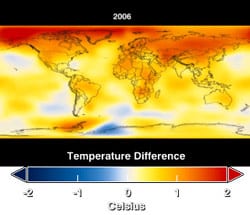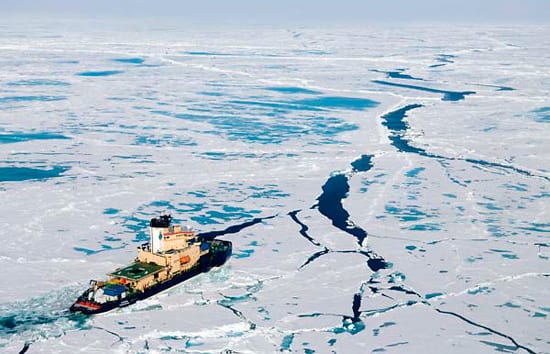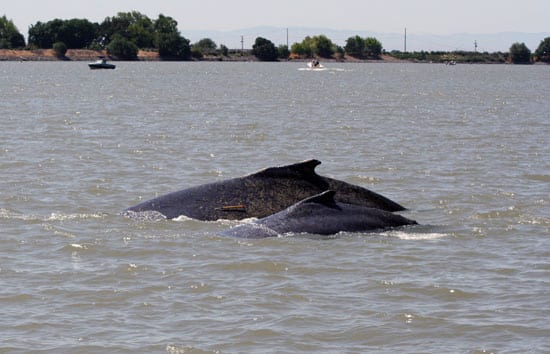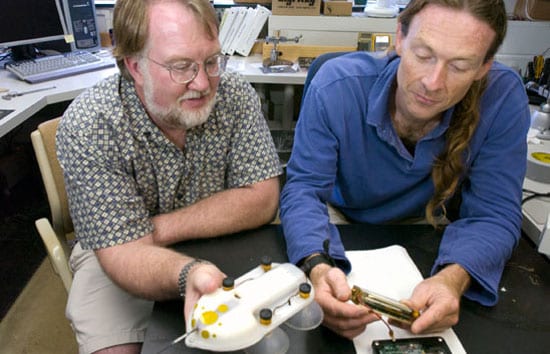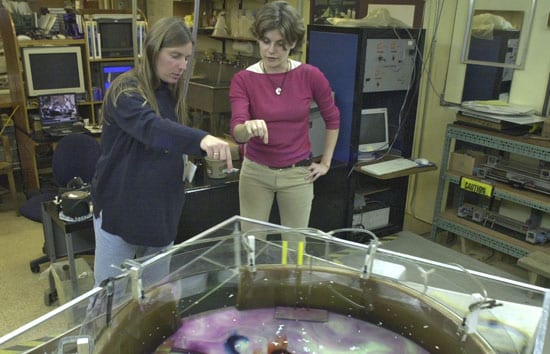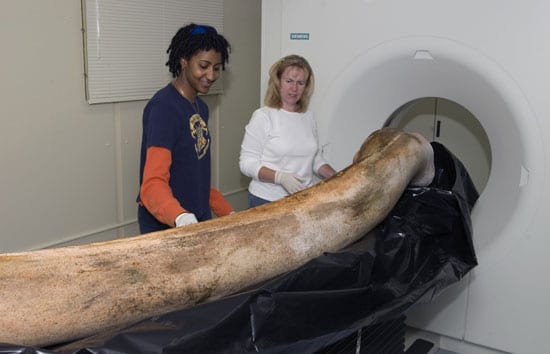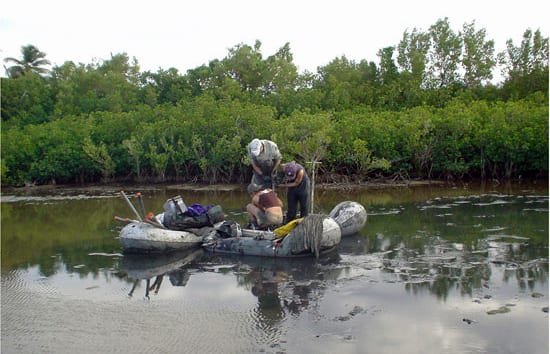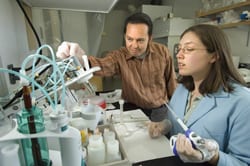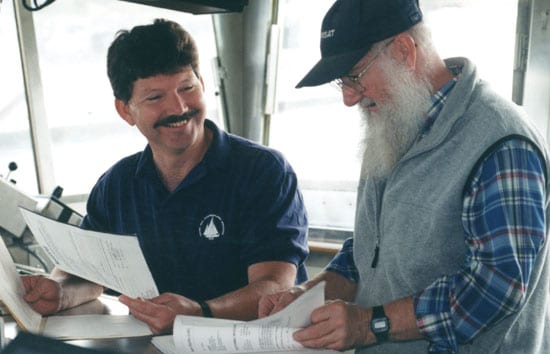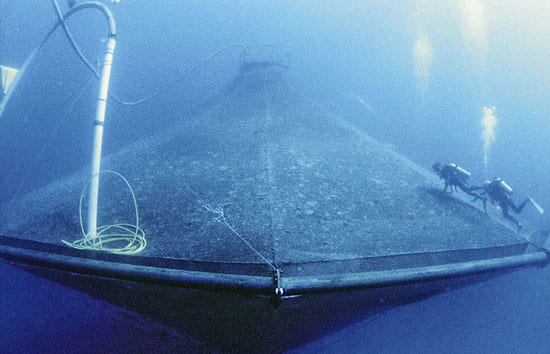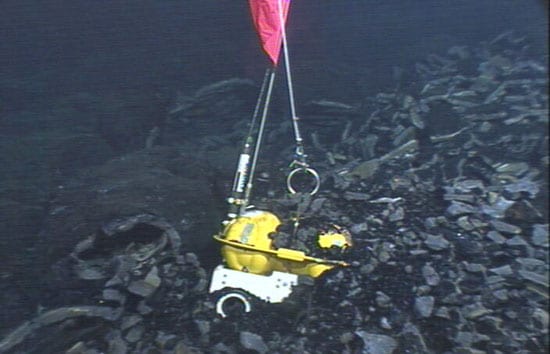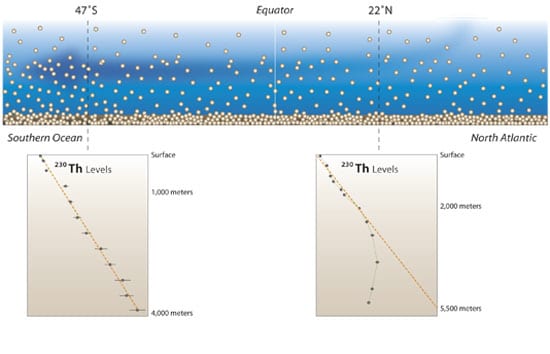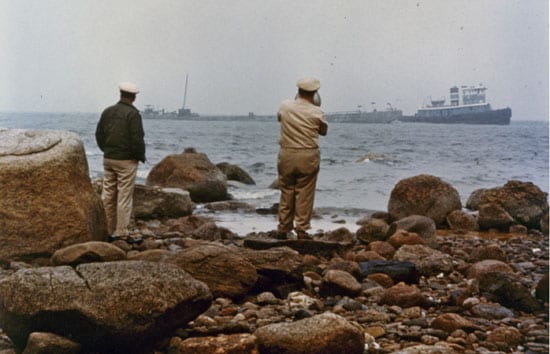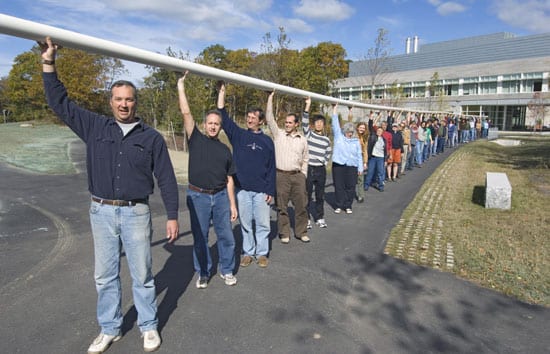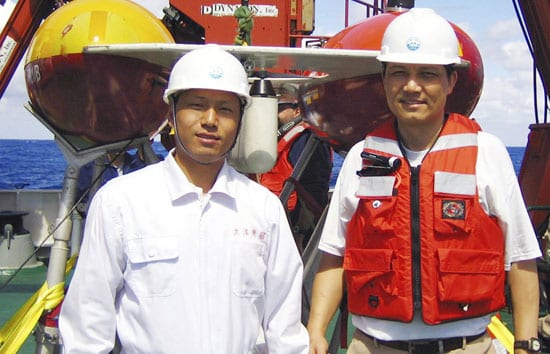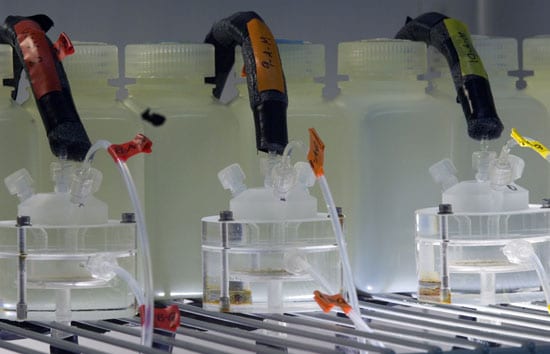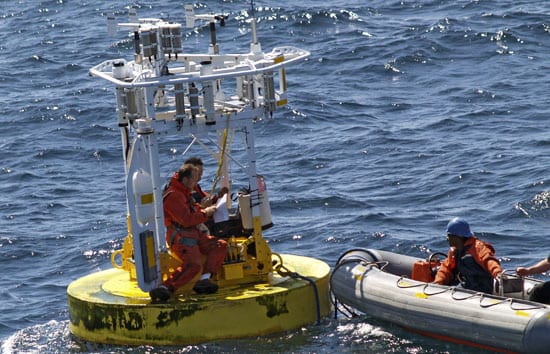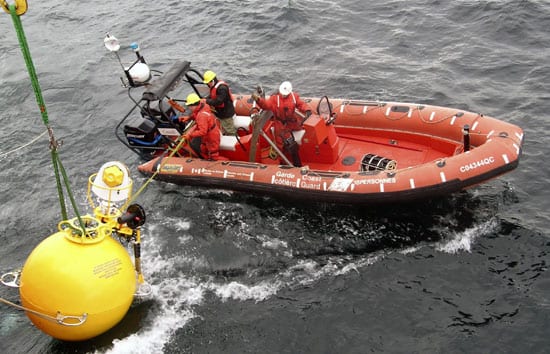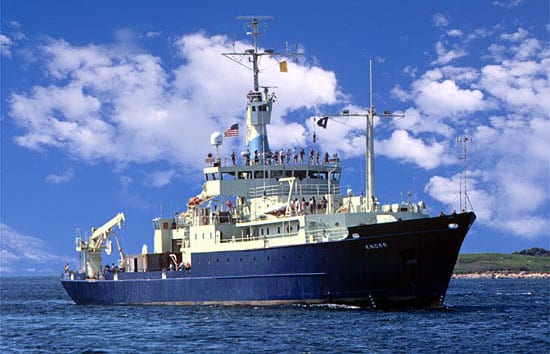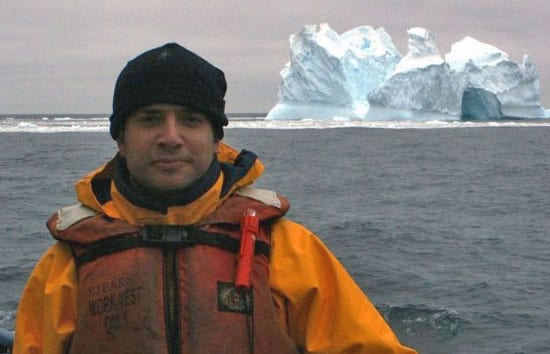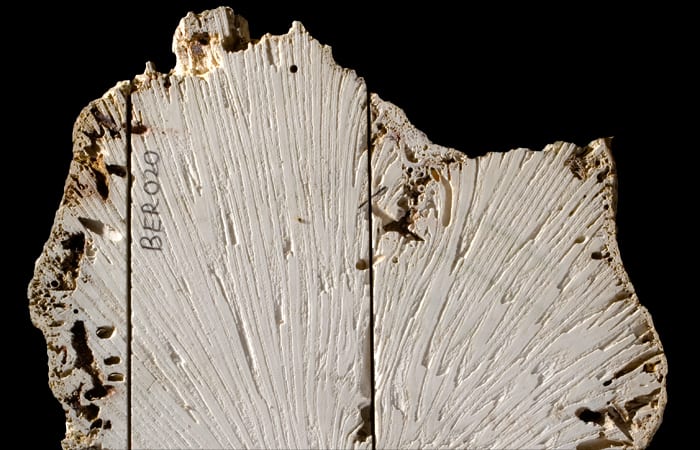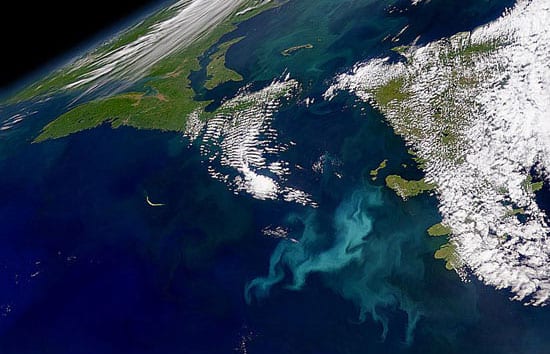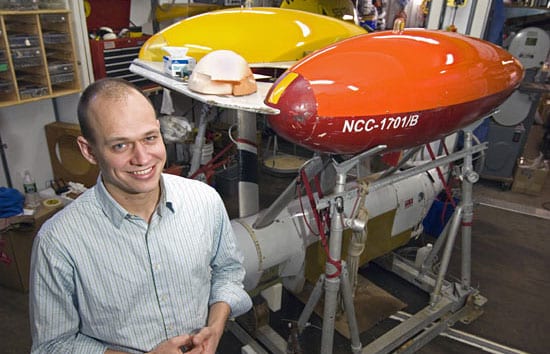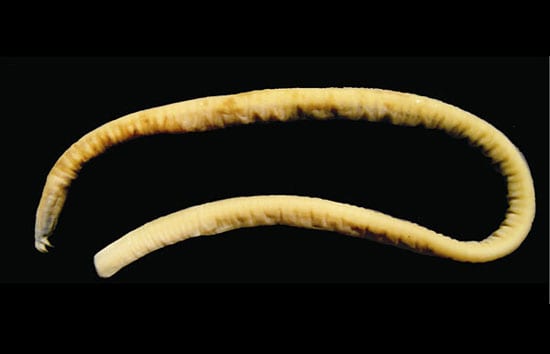Feature
Forecast: Hotter East Coast Summers …
Summer Under Arctic Ice
This month, an international team of scientists and engineers are exploring the seafloor of the Arctic Ocean while cruising aboard the Swedish icebreaker Oden. The science team is sending three…
Read MoreFollowing Whales Up a Creek
Michael Moore is accustomed to working solo (or nearly so) in remote places, but this was a very public endeavor. The WHOI marine mammal biologist and veterinarian flew across the…
Read MoreThe Deepest Divers
For years, sperm whales and elephant seals were thought to hold world records for holding their breath under water. But those animals have nothing on beaked whales. Using digital tags…
Read MoreThe Ocean—Captured in a Box
Claudia Cenedese prides herself on thinking inside the box. Her boxes are made of Plexiglass, and they contain the oceans—but on a miniature scale. Most oceanographers make tiny observations in…
Read MoreWhat Does It Take To Break a Whale?
The ship hit the whale with a force that snapped her 14-foot jawbone like a toothpick and left a 4-foot-long crack in her skull. Known as 2150 among scientists, she…
Read MoreScientists Unearth Long Record of Past Hurricanes
Reaching down into the muck below a lagoon off Puerto Rico, two geologists at Woods Hole Oceanographic Institution reached back 5,000 years to compile the longest record of strong hurricanes…
Read MoreGrowing Marine Plants Need Their Vitamins
Your mother was right: You need your vitamins. And that turns out to be true for life in the oceans, too. B12—an essential vitamin for land-dwelling animals, including humans—also plays…
Read MoreOf Sons and Ships and Science Cruises
Woods Hole Oceanographic Institution (WHOI) has had an unbroken line of three ships named Atlantis that date to the Institution’s founding in the early 1930s. Arthur D. Colburn III, better…
Read MoreNew Regulations Proposed for Offshore Fish Farms
Newly proposed legislation to regulate large-scale fish farming in the oceans around the United States incorporates major recommendations from a blue-ribbon task force organized by the Woods Hole Oceanographic Institution…
Read MoreRescue Mission on the Seafloor
The two earthquake-monitoring instruments—each the size and weight of a small refrigerator—were glued to the ocean bottom by erupting lava that had flowed and hardened around them. If scientists could…
Read MoreDeep Ocean Waters Don’t Run Still
The ocean’s circulation is thought to play an important role in our climate by transporting heat from tropical regions toward Earth’s poles. Of particular interest is the circulation in the…
Read MoreStill Toxic After All These Years
This is a story about persistence—of oil, and of people. It began in 1969 when the barge Florida ran aground off Cape Cod, spilling 189,000 gallons of fuel. But it…
Read MoreThe Lo-o-o-ng Core
Since the early part of the 20th century, scientists have been going to sea on ships equipped with long, hollow pipes called corers. These corers are used to collect seafloor…
Read MoreA Ridge Too Slow?
Ever since scientists first discovered vents gushing hot, mineral-rich fluids from the seafloor in the Pacific Ocean 30 years ago, they have found them in various places along the Mid-Ocean…
Read MoreCell-sized Thermometers
Climate shifts are a repeating feature in Earth’s history, but humans have added so much greenhouse gas (especially carbon dioxide) to the atmosphere that climate is warming in our lifetimes.…
Read MoreMeasuring Raindrops in the Ocean
Earth is often called the blue marble. But it’s more like a marble cake: a swirling batter of air, sea, and dirt stirred by our spinning planet and baking under…
Read MoreLetter from Kangiqsujuaq
Charlie’s Motel was a welcome break from Kangiqsujuaq’s airport in northernmost Quebec, where we had just spent six hours uselessly waiting for the plane that would take us home. But…
Read MoreTwo Ships Passing Passengers in the Night
Into the frigid darkness, following two days of stormy weather, Woods Hole Oceanographic Institution’s coastal research vessel Tioga left port shortly after 10 p.m. on March 6, with sea spray…
Read MoreCurrent Events off Antarctica
The scientific method can divert researchers down curious pathways. Human psychologists study mouse brains. Astrophysicists look for cosmic particles deep in mine shafts. Taxonomists trace bird evolution by studying feather…
Read MoreDead Corals Do Tell Tales
Sometime around the beginning of the 17th century, a tiny drifting larva found the perfect piece of real estate to settle down, on the shallow seafloor off the island of…
Read MoreFollow the Carbon Trail
Carbon makes the world go around. It is the building block of life on Earth, and in the form of carbon dioxide gas in the atmosphere, it has a powerful…
Read MoreYoung Pup Teaches an Old Robot New Tricks
Mike Jakuba was still a year away from being born when scientists found vents on the seafloor that gushed hot, mineral-rich fluids and were surrounded by bizarre life forms thriving…
Read MoreWould a Hagfish By Any Other Name Smell as Sweet?
It’s not hard to figure out how hagfish got their name, since they aren’t exactly warm and fuzzy. Slithery, skinny, coated in gooey slime, and often found wriggling and eating…
Read More
